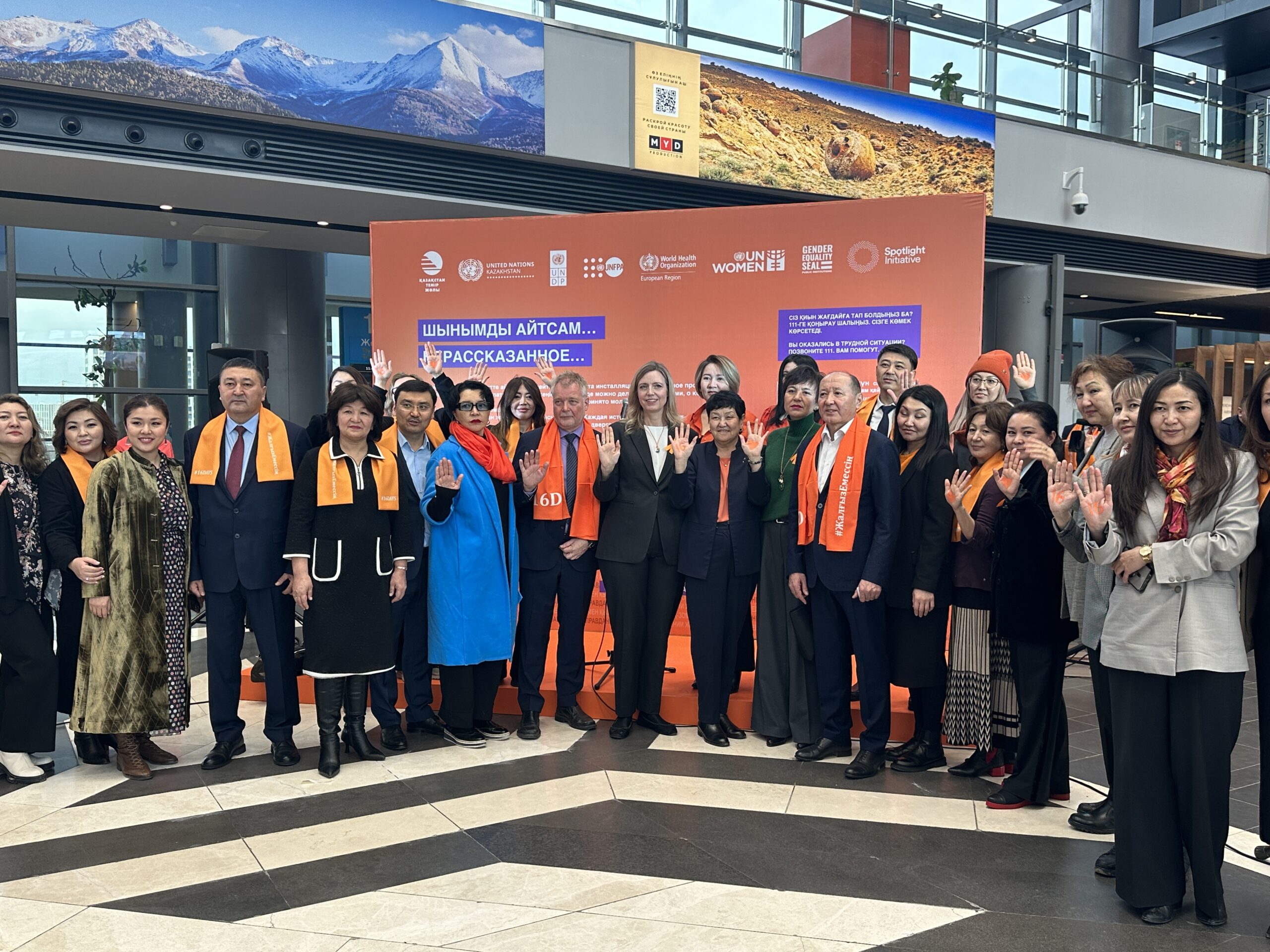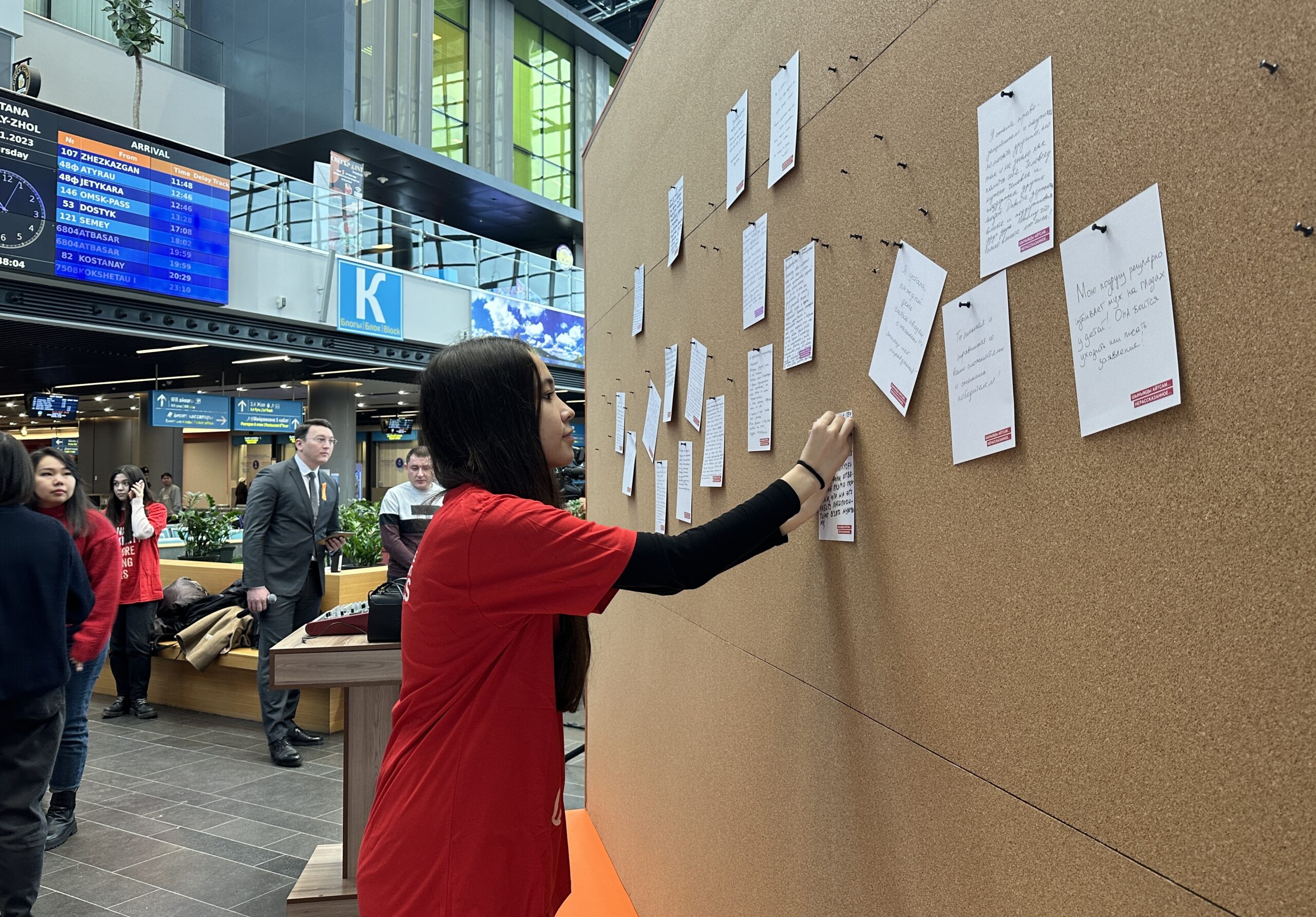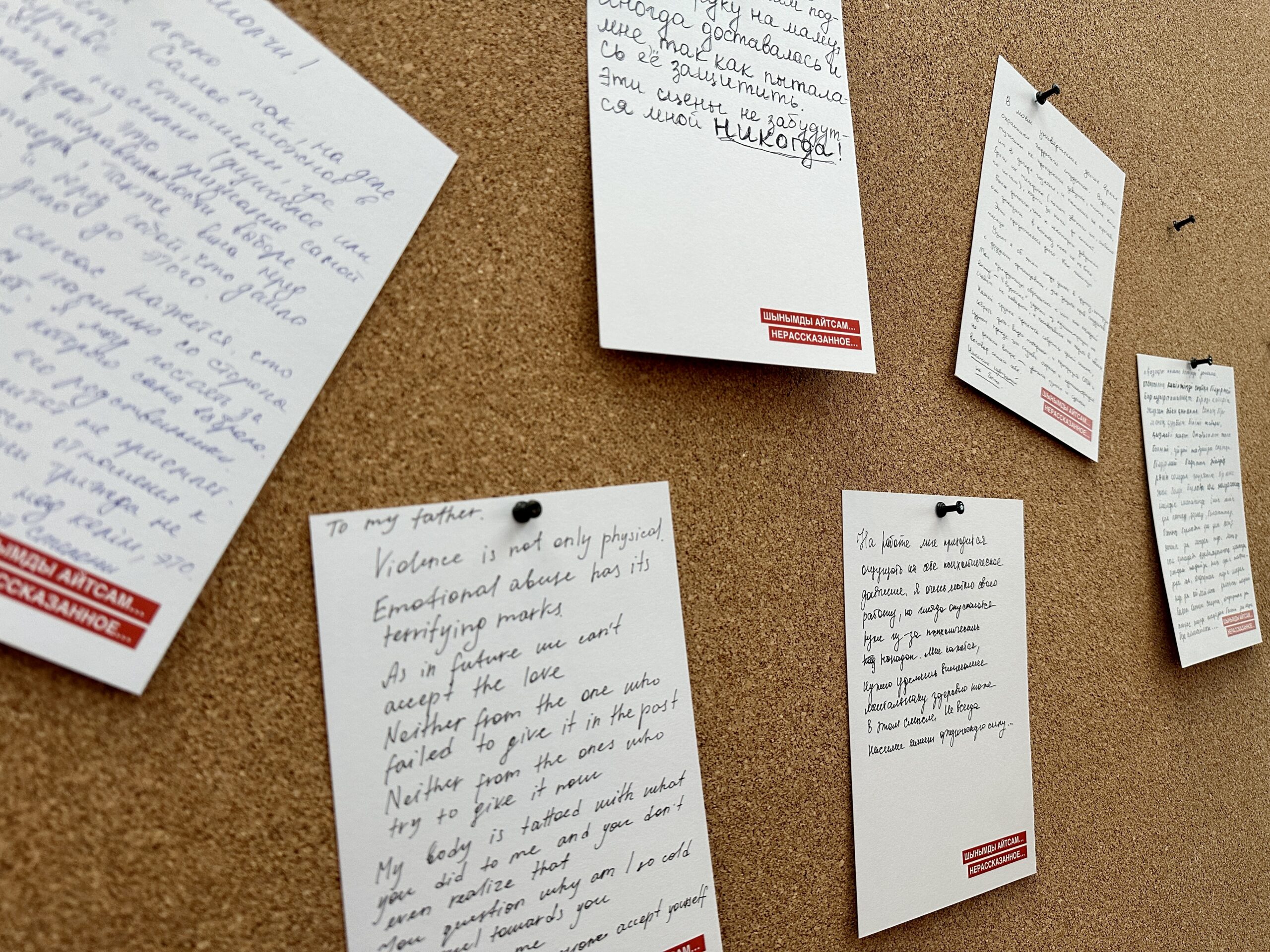ASTANA – The Untold installation, which calls for speaking out in the face of violence towards women, opened on Nov. 23 at the Nurly Zhol railway station in Astana. The presentation of the installation comes ahead of the United Nations (UN) 16 Days of Activism Against Violence campaign.

The UN agencies in Kazakhstan at the opening of Untold installation. Photo credit: Aibarshyn Akhmetkali/astanatimes.com.
With every sixth woman subject to violence every year in Kazakhstan, less than a third seek help from the police. In 2022, over 61,000 cases of domestic violence were registered in the country.
How many cases go untold and remain silent? That is the question the organizers of the exhibition, UN agencies in Kazakhstan and the Kazakhstan Temir Zholy national railway carrier, sought to answer.
Everyone will have a chance to share personal experiences of violence anonymously within two weeks until Dec. 10, World Human Rights Day. The organizers of the installation plan to use the collected material in their future campaigns aimed at combating violence against women and girls.
According to the UN Resident Coordinator in Kazakhstan Michaela Friberg-Storey, gender-balanced representation is what the UN stands for and it is the direction Kazakhstan should go.

Everyone will be able to anonymously, in a specially designated booth, tell about the most intimate things on a piece of paper and then attach it to the Untold stand. Photo credit: Aibarshyn Akhmetkali/astanatimes.com.
“There will need to be changes in laws and there will need to be strengthened institutions, and most importantly, there will need to be changes in social behaviors,” she said.
“I think one of the most important points is to change the attitudes in society towards women, to make sure that women are part of society. Of course, there needs to be legislative change, whether we talk about domestic violence or whether we talk about participation in political life. And we need men who engage in a gender-equal society,” Friberg-Storey told the journalists.
Vice Minister of Information and Social Development Yevgeny Kochetov said that Kazakhstan is implementing designated measures to combat violence against women.
“As of July 1 of this year, liability for domestic violence has been toughened,” said Kochetov.
“We have switched from the declarative to the revealing nature of registration of domestic offenses. The requirements for the procedure of reconciliation of the parties have been toughened. Now it is possible to reconcile in court only once within a year. Responsibility for offenses in the family and domestic sphere has been strengthened. The number of inspectors for the protection of women against violence has been doubled and brought up to the established norms. Specialization of female investigators in the investigation of violent crimes has been introduced,” the vice minister said.

The organizers plan to use the collected material in their future campaigns aimed at combating violence against women and girls. Photo credit: Aibarshyn Akhmetkali/astanatimes.com.
According to the UN Women Kazakhstan Head of Office ad interim Dina Amrisheva, sexual harassment is not a new phenomenon in Kazakhstan, but in the absence of a clear definition and legislative base, there is not much that can be done.
“Women should understand what harassment is because there are certain stereotypes in society. Therefore, public activities by international organizations, national partners and the expert community to raise awareness of this issue are crucial,” said Amrisheva.
“Legislatively, unfortunately, at the moment, there is no definition of sexual harassment. So we are now working with our partners to develop a new draft law that will include this definition and appropriate measures that can be taken to protect women and girls from harassment and violence,” she added.
Empowering women with education and equal opportunities as well as giving them the power to make decisions are key to preventing gender-based violence, said Katarzyna Wawiernia, the United Nations Development Programme (UNDP) Resident Representative in Kazakhstan.
“The development program, together with national partners, implements projects to empower women economically through educational programs and business support. This is very important because women’s economic independence allows them to avoid situations in which they may be subjected to violence and it gives them more opportunities for self-fulfillment,” said Wawiernia.
“We work to ensure that women can participate in decision-making, be more competitive in the labor market, hold leadership positions and stand together against gender-based violence,” she added.

